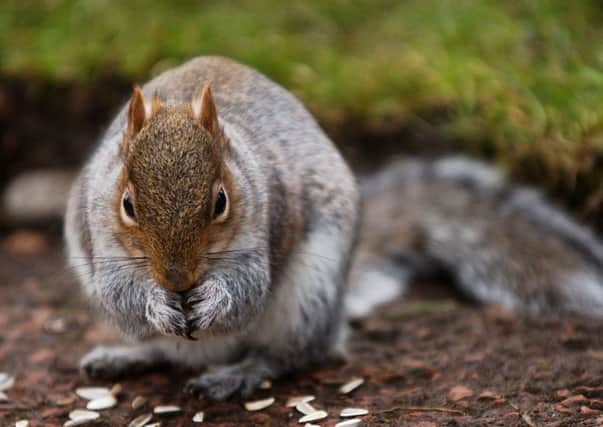Squirrels demonstrate speedy learning in nuts test


A group of five grey squirrels surprised researchers with the speed at which they solved a puzzle involving hidden hazelnuts.
The intelligence test was in the form of a box with 12 sunken wells, four of which were hollow.
Advertisement
Hide AdAdvertisement
Hide AdNuts were placed in the four hollow wells diagonally across from each other, so that the least efficient way to look for them was by going from well to well in a clockwise or anti-clockwise sequence.
Over a number of successive attempts, the squirrels - named Simon, Arnold, Sarah, Leonard and Suzy - worked out that if one well contained a reward, another nut would be located in the well diagonally opposite it.
Researcher Pizza Ka Yee Chow, from the University of Exeter, said: “This was only a small study, but the results are quite remarkable - the squirrels learned to pick the diagonally opposite well if the first one they picked contained a nut.
“They made a decreased number of errors as they learned and progressively changed their tactic to increase efficiency and obtain the hidden rewards.”
Co-author Dr Lisa Leaver, also from the University of Exeter, said: “We predicted that squirrels would be quick to learn this task because learning spatial arrays is crucial for them in order to recover their food caches in the winter months.
“These results are interesting because they don’t just show that the squirrels were quick to learn about changes in food location, they also give some indication about how they learned to complete the task.
“This is an area that we are investigating in more detail in order to understand how animals in general, and squirrels in particular, learn about changes in the environment.
“Flexibility in learning might allow particular species like squirrels to be successful invaders, and understanding more about their learning processes may be the first step in helping to control invasive species.”
The research is published in the Journal of Experimental Psychology: Animal Learning and Cognition.